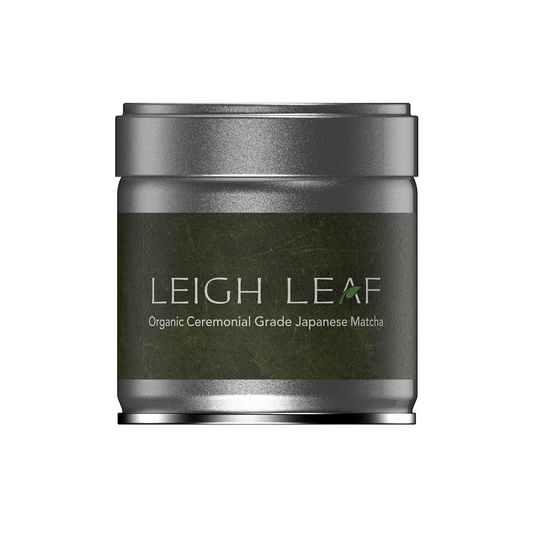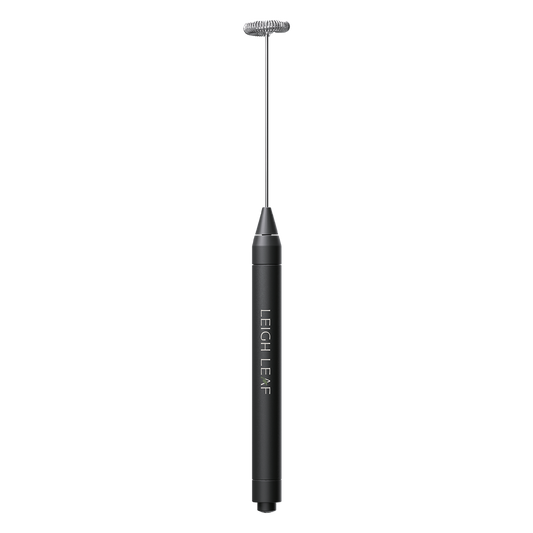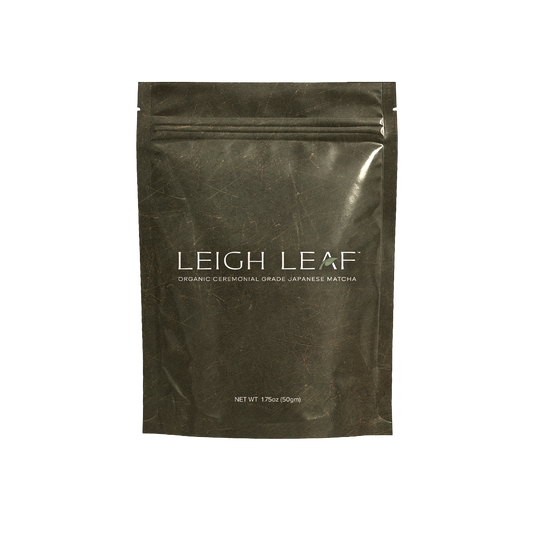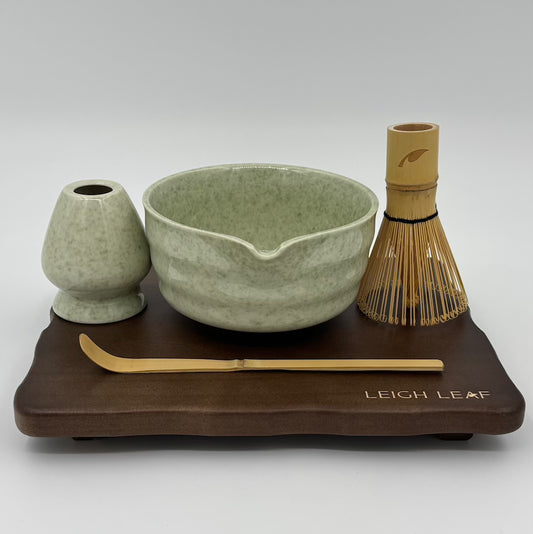
Why is Matcha Good for You?
Share
Matcha, the vibrant green powder that has taken the health and wellness world by storm, is often hailed as a superfood. But what makes matcha so special, and is it really good for you? In this article, we will dive deep into the world of matcha, exploring its origins, flavor, caffeine content, and, most importantly, its potential health benefits. So grab a cup of this green elixir and let's unravel the mysteries of matcha.
Table of content
Is Matcha Healthy?
Yes, indeed, matcha is healthy, and for good reason. Besides its health benefits, this elixir has been around for a long time and hasn't gone out of style. Matcha is made from shade-grown tea leaves from the same plant as traditional green tea, Camellia sinensis.
What is Matcha?
In the Tang dynasty, China developed matcha, a powdered green tea. Matcha means "powdered tea." Before harvest, tea plants are shaded to increase the amount of chlorophyll, which is then used to make matcha. Because of this, matcha has a vibrant green color and a unique taste.
Is Matcha Green Tea?
Yes, matcha is a type of green tea, but it's not your run-of-the-mill green tea bag. Matcha is a powdered form of green tea that comes from the same plant as green tea, although it is grown differently and consumed in a powdered form. This unique production process results in a concentrated, vibrant green tea that packs a potent punch in terms of flavor and health benefits.
What Does Matcha Taste Like?
If you've never tasted matcha before, you might be curious about its flavor. The taste of matcha can be described as vegetal, earthy, and slightly sweet. Some even say it has an umami flavor, which is often associated with savory foods. The taste of matcha can vary depending on its quality and how it's prepared, but its unique flavor is one of the reasons why it's so beloved by many.
Does Matcha Have Caffeine?
One of the components that sets matcha apart from other teas is its caffeine content. Matcha does contain high levels of caffeine, but the way it interacts with the body is different from the caffeine in coffee. Caffeine in matcha is bound to a compound called L-theanine, which causes jitteriness and relaxation.
1. Caffeine Content of Matcha
The caffeine content of an 8-ounce cup of matcha typically ranges from 70 to 165 milligrams, while coffee typically has 95 to 165 milligrams. So, while matcha does provide a caffeine boost, it tends to be gentler on the nervous system, leading to sustained and alert energy without the coffee crash.
2. Caffeine Present in Matcha
The caffeine present in matcha, combined with L-theanine, offers a unique synergy. L-theanine promotes a state of calm alertness, which means that, unlike coffee, matcha can give you the energy you need without the jitters or the inevitable mid-morning slump.
Does Matcha Have Health Benefits?
Now that we've established matcha as a distinct and somewhat mystical beverage, let's dive into how matcha might benefit health.
1. Component of Matcha
One of the key components of matcha that contributes to its health benefits is its high concentration of antioxidants. The antioxidant properties of matcha can be attributed to catechins, a polyphenol type. Antioxidants help protect the body from oxidative stress and free radical damage, which are associated with cancer and heart disease.
2. Types of Matcha
Matcha is all about quality. Matcha comes in different grades, ranging from culinary to ceremonial, each with its own purpose and quality. Ceremonial-grade organic matcha is often used in traditional Japanese tea ceremonies. It has a vibrant, smooth green color and a delicate, sweet flavor. Culinary-grade matcha, on the other hand, is used in cooking and is slightly bitter, making it better suited for recipes like matcha lattes or green tea ice cream.
3. Consuming Matcha
There are various ways to consume matcha, making it a versatile addition to your daily routine. You can simply whisk it into hot water to make a traditional matcha tea, or you can get creative and incorporate it into smoothies, baked goods, and even savory dishes. The possibilities are endless, and this versatility allows you to reap the health benefits of matcha in a way that suits your taste and lifestyle.
So, Is Matcha Healthy?
In summary, yes, matcha is undeniably good for you. It's a powerhouse of antioxidants; it provides a gentle caffeine boost; and it offers a unique combination of flavor and versatility. Among the health benefits associated with matcha are improved mental alertness, enhanced metabolism, and improved heart health. Its cultural significance and rich history make it a popular tourist destination. Learn more about Matcha at Leigh Leaf.
When you enjoy a matcha latte or a scoop of matcha-flavored ice cream, you're not only enjoying a tasty treat; you're also nourishing your body with an ancient beverage.
As health-conscious choices become more important, matcha stands out as a beverage that meets and exceeds expectations. So, whether you're a seasoned matcha enthusiast or a curious newcomer, there's no doubt that matcha is a green delight that's here to stay. Experience the benefits of matcha for your health and well-being by embracing the matcha trend.




